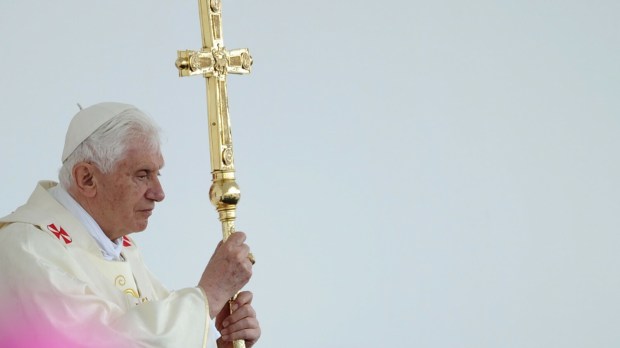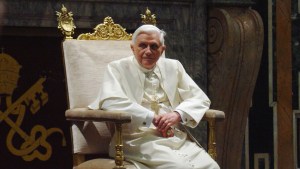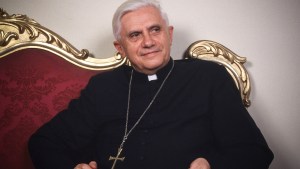Certain key voices reacted to the publication of Benedict XVI’s letter responding to the Munich report, published February 8. While former collaborators have defended his “characteristic” search for truth, and the German episcopate has welcomed his approach, some associations have also expressed their disappointment.
The truthfulness of Benedict XVI’s words is unmistakable, said Father Federico Lombardi in two interviews – one in Italian and one in French – published by Vatican News. Father Lombardi, the Jesuit priest who was director of the Holy See Press Office during Benedict’s pontificate, stressed that the search for truth was “a characteristic” of his personality and that it had “always been at the forefront” of his life.
The German Pontiff “never sought to hide what could be painful to recognize for the Church… He never sought to give a beautiful but false image of reality,” said Fr. Lombardi, who now serves as president of the Ratzinger Foundation.
Describing the German Pontiff’s letter as “a letter of truth about himself, about the situation of the Church,” Father Lombardi praised its “sincerity, intensity and depth.” Benedict XVI “sees the full reality of the gravity of this affair,” he added, even though he has “suffered a lot” from being accused of lying.
Benedict XVI doesn’t run away
For the editorial director of the Dicastery for Communication, Andrea Tornielli, the 94-year-old Pope Emeritus has a “penitential” attitude. His words, he wrote in an editorial, “are those of a helpless old man” who “sincerely asks for forgiveness without running away from concrete problems.”
Benedict XVI “claims nothing” of the battle he waged against abuse as prefect of the Congregation for the Doctrine of the Faith and then as pontiff, notes Andrea Tornielli. But “he writes, without clearing his name, that he himself feels challenged by the attitude of those who, even today, underestimate the phenomenon” and he “invites the whole Church to feel the bloody wound of abuse as its own.”
Mixed reactions in Germany
The president of the German Bishops’ Conference, Archbishop Georg Bätzing, also welcomed the statement of the 265th pope: “Pope Emeritus Benedict XVI had promised to speak out,” he reacted on the conference Twitter account. He has now honored his commitment. I am grateful to him and he deserves our respect.
These are not insignificant words from the bishop of Limburg, who, after the publication of the report, said he felt that his compatriot should apologize.
The current Archbishop of Munich-Freising, Cardinal Reinhard Marx, also welcomed the letter of his predecessor in the diocese. He mainly emphasized the penitential attitude of Benedict XVI.
However, as noted by Vatican media, these positive opinions are not unanimously shared. Indeed, several German lay groups, including “Wir sind Kirche” – “We are the Church”, an association of victims campaigning for structural reform of the Church – and “Eckiger Tisch” – “Corner Table,” another association of victims – have expressed their disappointment.
They accuse the Church of “permanent relativization”: Crimes and mistakes have occurred, “but no one takes concrete responsibility for them.”



